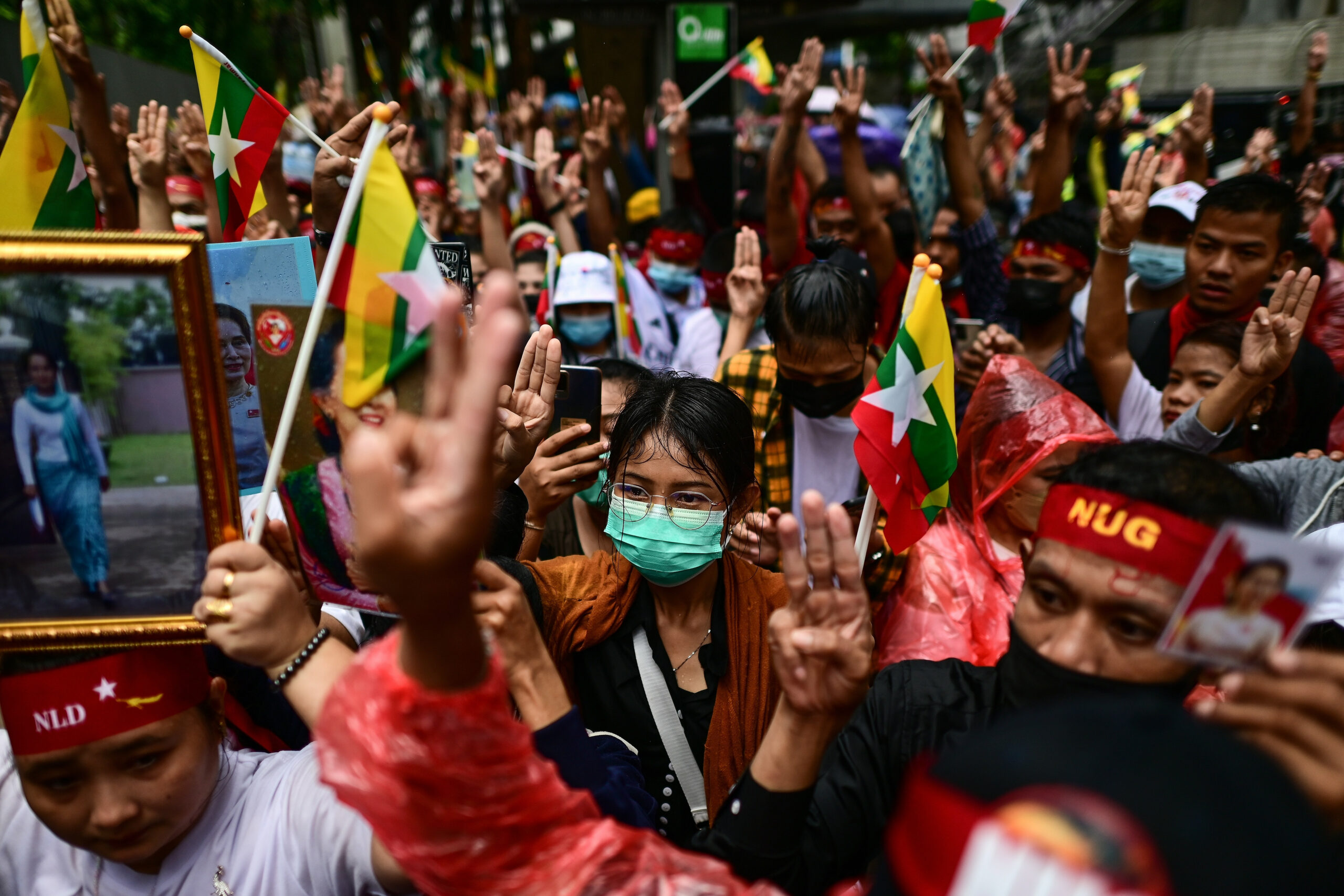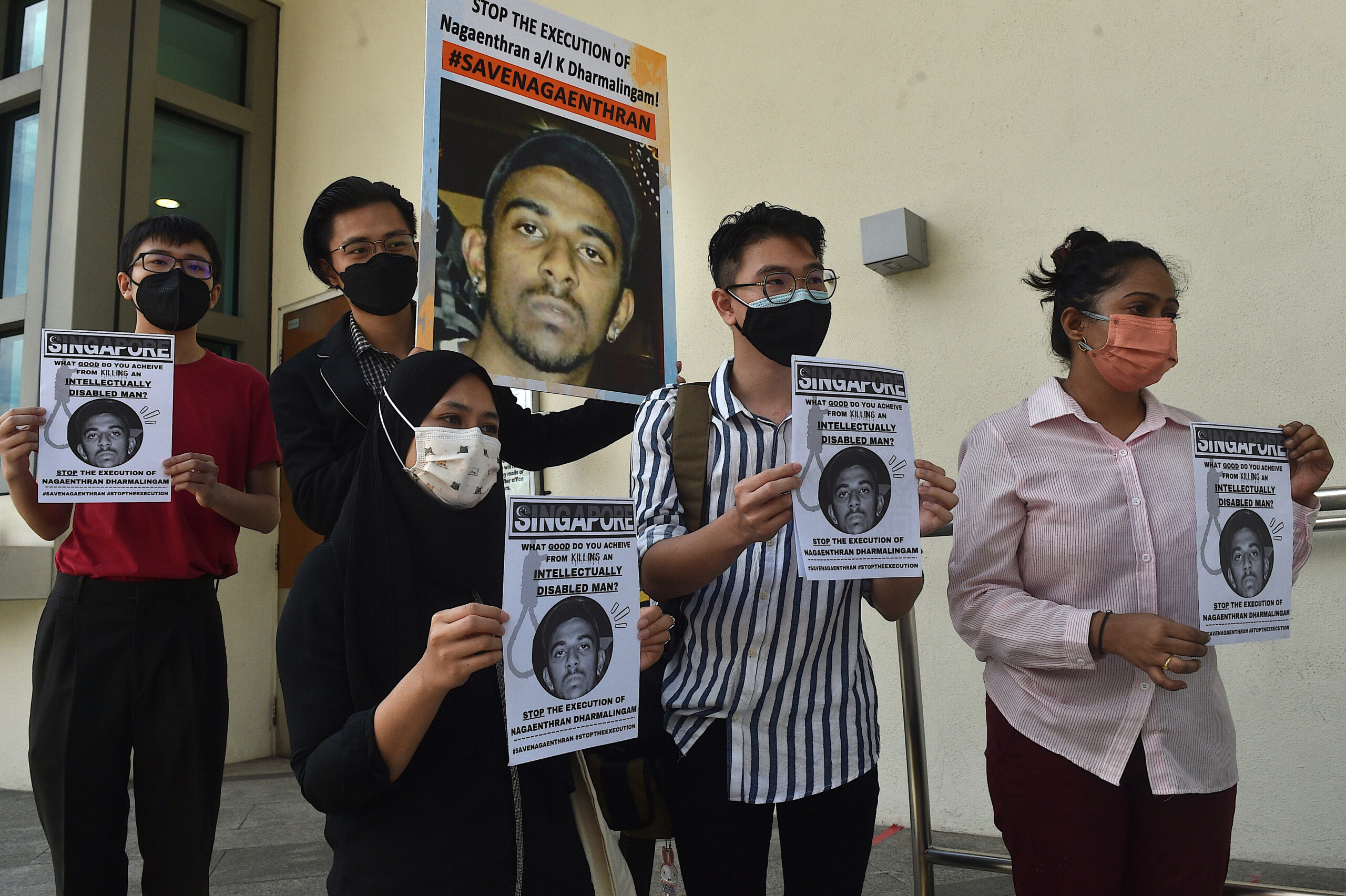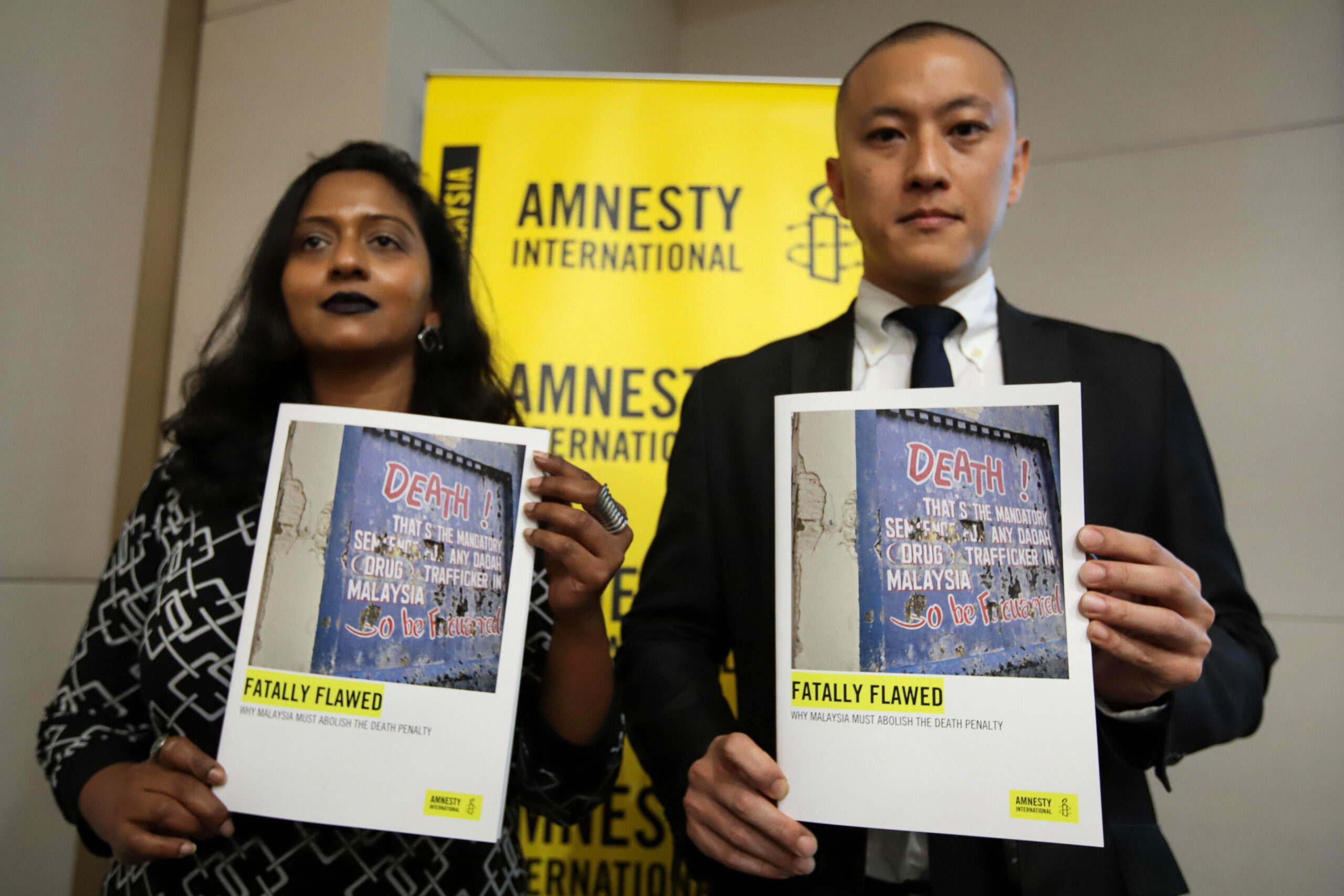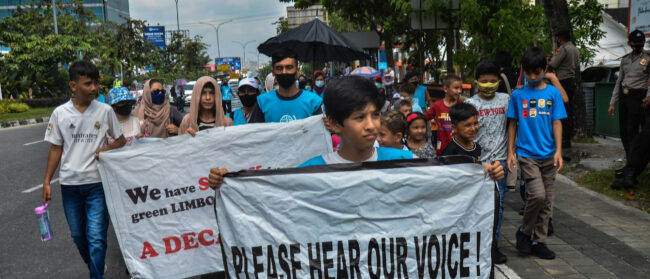Southeast Asia is a hotspot for capital punishment, even though enforcement varies. Out of all the countries in this region, only Timor-Leste, Cambodia and the Philippines do not retain the death penalty in law.
Change is urgently needed, yet also immensely difficult to achieve amid rigid mindsets and environments hostile towards human rights activism.
Southeast Asians are repeatedly told by our governments that the death penalty deters crime, that it is appropriate punishment for criminals and that these executions make our societies safer. The reality is that there is no clear, credible evidence that the death penalty deters crime.
Additionally, retaining capital punishment is risky even when no-one has been executed for a long period. Moratoriums on executions are nowhere near as binding as abolition and executions can resume at any time, as Myanmar’s recent executions have proven.
Myanmar had not carried out executions for decades, leading Myanmar to be classified by Amnesty International as “abolitionist in practice.”
This classification vaporized on 25 July when the junta that seized power in a 2021 coup executed four democracy activists, including former legislator Phyo Zeya Thaw and prominent activist Ko Jimmy, without giving their families clear information about when the executions would take place.
While the military hasn’t shied away from state violence and murder of ethnic minorities and those who have resisted martial rule, the death penalty provides the junta’s leaders with yet another tool to brutally repress the people of Myanmar.
Myanmar’s action drew international condemnation. Cambodia, in its capacity as ASEAN chair for 2022, issued a statement saying the regional bloc was “extremely troubled and deeply saddened” by the executions.

The Singapore government deployed the crime deterrence narrative in April when the state hanged Nagaenthran K Dharmalingam, a Malaysian man with an IQ of 69 and other cognitive impairments, for drug offences. More prisoners remain in danger of going to the gallows in the city-state. As far as Singaporean activists know, six men including Nagaen have been hanged in 2022. Two more were scheduled to be hanged on 2 August, and at least one more on 5 August.

Research comparing the homicide rates of Hong Kong, a jurisdiction without the death penalty, and Singapore, where death sentences are handed out for murder, found “[homicide] levels and trends are remarkably similar in these two cities over the 35 years after 1973, with neither the surge in Singapore executions nor the more recent steep drop producing any differential impact. “
The same goes for drugs. Harm Reduction International stated in its 2018 report: “There is no evidence that the death penalty is an effective deterrent to the drug trade – in fact, according to available estimates, drug markets continue to thrive around the world, despite drug laws in almost every country being grounded in a punitive approach.”
What is known for sure is the existence of the death penalty opens the criminal punishment system to vulnerabilities and errors with fatal and irreversible consequences. As long as the death penalty remains on the books, wrongful executions are a question of when, not if.
This is as true for states priding themselves on their strong ‘rule of law’ as for those with weaker legal systems. Even if the individual was guilty of an offence, international organisations like the Global Commission on Drug Policy and Harm Reduction International point out that capital punishment disproportionately affects ethnic minorities, people with disabilities and those from poor socio-economic circumstances and marginalised segments of society.
Mainthan Arumugam is still on death row in Malaysia after his conviction for the murder of a man who later showed up, very much alive, at Mainthan’s mother’s funeral. Yet the Malaysian federal court rejected the application to review his case. His family, having lost their breadwinner, has struggled with poverty while he languishes in prison.
Fortunately, there are reasons for hope in Malaysia. Wan Junadi Tuanku Jaafar, the country’s de facto law minister, announced on 10 June that the government decided to abolish the mandatory death penalty, giving judges discretion to consider mitigating factors and the specifics of each case before deciding on an appropriate sentence.
More details will be needed before the real celebrations begin, with promises to table a bill in parliament in October, but the announcement itself is an encouraging move. Still, it can only be a beginning: while this step and the continuing moratorium in Malaysia provides relief for those still on death row, full abolition needs to be the ultimate goal.

Even in Southeast Asian countries that have abolished the death penalty, punitive narratives and mindsets still lead to fatal outcomes.
The lack of a capital punishment regime did not stop widespread bloodshed in outgoing Philippine President Rodrigo Duterte’s devastating war on drugs. While the number of fatalities varies between reporting organisations, a report by the United Nations OHCHR noted the “most conservative figure” was 8,663 people killed between July 2016 and 2020.
While those of us in Singapore and other Southeast Asian countries retaining the death penalty for drug offences might decry the barbarity of extrajudicial killings, we also need to acknowledge the underlying logic of Duterte’s ‘shoot first, ask questions later’ approach essentially undergirds our own capital punishment regimes.
The methods might differ, but punitive, zero-tolerance drug policies in countries including Indonesia, Malaysia and Singapore are ultimately premised on the idea that society can punish and kill our way out of dealing with drug use and the narcotics trade.
Capital punishment also attempts to control people through fear and pain instead of targeted and meaningful interventions, while the state or those empowered by the government have the right to decide who lives and dies.
The work to end state violence is extremely challenging, not least because so many Southeast Asians live under authoritarian environments in which the state holds wide-ranging powers over all aspects of life.
Anti-death penalty activism is difficult to undertake when human rights defenders across the region are routinely harassed, intimidated or themselves subjected to acts of state violence.
In Singapore, abolitionists are hampered by restrictive laws criminalising public assemblies and limiting freedom of expression. A National University of Singapore student who displayed a piece of paper at his graduation ceremony demanding an end to the death penalty confirmed to me that the police have since commenced an investigation into his actions.
What’s needed isn’t just death penalty abolition, but an overhaul of the way Southeast Asian governments and people perceive and approach crime and punishment.
This requires creating space for advocacy and public education so conversations on this important issue can be held openly without fear of reprisal.
Only by imagining different futures and societies, in which people can exercise agency and be held accountable for their actions without causing more harm, can we break away from oppressive systems passing judgment in matters of life and death.
Kirsten Han is a freelance journalist, anti-death penalty activist and Transformative Justice Collective member who has worked with families of death row prisoners in Singapore for a decade.


